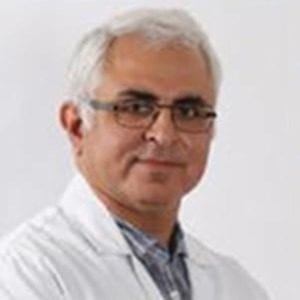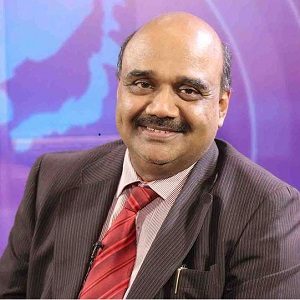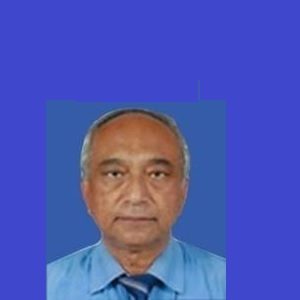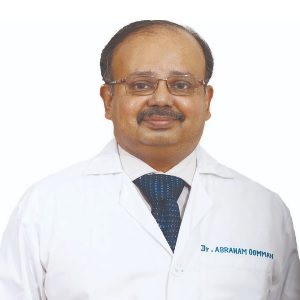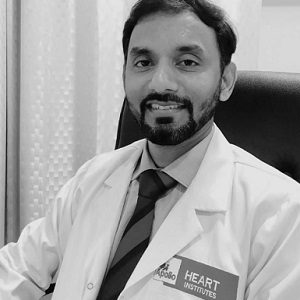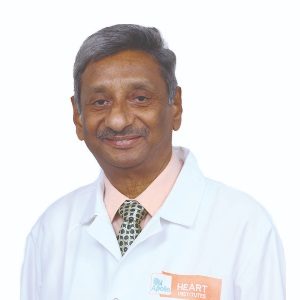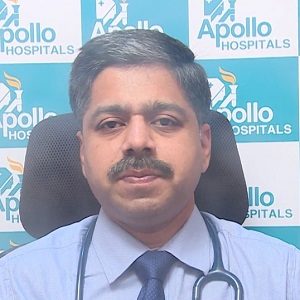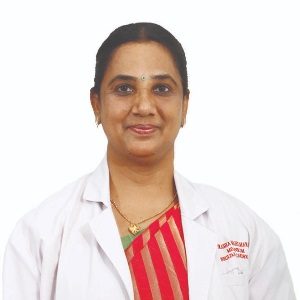Best Doctors in India for Cardiac Catheterization
- Cardiologist, Gurugram, India
- Over 20 years’ experience
Profile Highlights:
- Dr. Hemant Madan is an experienced and accomplished cardiologist, with a professional experience of around 20 years.
- His expertise includes all aspects of cardiology, including pediatric cardiology, complex coronary interventions, device implantation, all kinds of rhythm disorders, percutaneous treatment of valve stenosis, and peripheral interventions.
- Dr. Madan pursued his Fellowship at the Royal College of Physicians from Edinburgh in UK.
- Cardiac Surgeon, Gurugram, India
- Over 15 years’ experience
Profile Highlights:
- Dr. Rachit Saxena is an experienced cardiac surgeon, who is known for his extreme dedication to his profession, and for providing absolute patient satisfaction.
- Supported by an efficient cardiac surgical team, Dr. Saxena is known for successfully managing the most complex of cardiac surgical problems.
- Dr. Rachit Saxena is known especially known for the capability to perform cardiac surgery with minimal blood requirement and ensure early mobilization and return to work.
- Cardiothoracic Surgeon, Chennai, India
- Over 25 years’ experience
Profile Highlights:
- Dr. T Sundar is one of the best cardiothoracic surgeons in India.
- He is having extensive exposure to critical heart diseases and he has operated on them successfully.
- Dr. T Sundar is a Senior Consultant at Apollo Hospitals since 2003.
- He has been associated with international standards of surgery and diagnosis since his education period.
- Cardiothoracic and Vascular Surgeon, New Delhi, India
- Over 36 years’ experience
Profile Highlights:
- Dr. N Sastri is a renowned cardiothoracic surgeon in India with extensive experience in critical heart surgeries.
- He has nearly 36 years of experience and is a senior consultant- Cardiothoracic & Vascular Surgery with Indraprastha Apollo Hospitals, New Delhi.
- Dr. Sastri specializes in the diagnosis and treatment of vascular disorders using advanced techniques. He has expertise in Total Anomalous Pulmonary Venous Connection Repair, Arterial and Ventricle Defects Surgery, Cardiac Resynchronization Therapy, Balloon Valvuloplasty, CABG LV restoration, PDA Device Closure, PPI, Valve Replacement, and Atrial Fibrillation Surgery.
- Over the years’ Dr. Sastri had treated patients across various countries. In addition to the adult and neonatal cardiac surgeries, he is involved in research and put out many research papers in different medical journals.
- Interventional Cardiologist, New Delhi, India
- Over 47 years experience
Profile Highlights:
- Dr. Prashanta Kumar Ghosh is a senior cardiologist at Indraprastha Apollo Hospital in New Delhi with experience of nearly 47 years in the field.
- Dr. Ghosh has expertise in testing and monitoring cardiac problems. The procedures mainly include minimally invasive cardiac surgery, implantations, device closure for congenital heart diseases, cardiac catheterization, Carotid Angioplasty, Stenting, etc. Half of his experience came from practicing non-invasive cardiology.
- He has so far performed nearly 3 lakh Echos as well as thousands of Doppler and Trans Esophageal Echos in his professional journey.
- Dr. Ghosh has participated in many studies and published papers in various conferences and journals. He also delivers lectures to the students of many institutions across India and abroad.
- Cardiologist, Chennai, India
- Over 31 years’ experience
Profile Highlights:
- Dr. Abraham Oomman is one of the best Cardiologists in Chennai, having an experience of 31 years in this field.
- Dr. Oomman offers consultation and also performs cardiac procedures. He specializes in Preventive Cardiology, Interventional Cardiology, Rheumatic Heart Disease, and Lipidology.
- Patients also visit him for ASD and VSD Surgery, Dextro-Transposition of the Great Arteries (DTGA), Minimally Invasive Cardiac Surgery, and Vascular Surgery.
- Cardiologist, Chennai, India
- Over 22 years’ experience
Profile Highlights:
- Dr. Refai is a world-renowned cardiologist who practices at Apollo Hospital in Greams Road, Chennai.
- Dr. Refai completed advanced training in the United Kingdom after finishing his medical degrees in India.
- He specializes in Angioplasty (Stent implantation), Implantable Cardioverter-Defibrillators (ICDS), Transradial Rotablation, Chronic Total Occlusion Angiography, Pacemaker, Cardiac Invasive Procedures, Bypass Surgery, and other cardiovascular procedures.
- He was involved in many TAVI-related studies at King’s College Hospital in London, and a heart failure pilot trial at The Essex.
- Interventional Cardiologist, Chennai, India
- Over 38 years’ experience
Profile Highlights:
- Dr. I Sathyamurthy is a veteran Cardiologist and has an experience of more than 38 years in Interventional Cardiology.
- Dr. Immaneni Sathyamurthy is a distinguished personality who bagged Padma Shri, the fourth-highest Indian civilian award. In addition to it, he was conferred many awards for his contribution to the medical sciences.
- He has over 250 publications to his credit, some of these are used as textbooks in medical courses.
- Interventional Cardiologist, Chennai, India
- Over 25 years’ experience
Profile Highlights:
- Dr. Karthigesan A M is a renowned Interventional Cardiologist with more than two decades of experience.
- He completed advanced training in cardiac arrhythmia in the USA to serve his patients in a better way.
- Dr. A M Karthigesan received several awards from prestigious associations for his contribution to the field.
- Dr. Karthigesan authored several research papers and articles in premier periodicals and presented papers at national conferences.
- Interventional Cardiologist, Chennai, India
- Over 32 years’ experience
Profile Highlights:
- Dr. Asha Mahilmaran is a seasoned Interventional Cardiologist in Chennai, with more than three decades of expertise in the sector.
- She excelled in academics and was awarded a gold medal in medicine and cardiology.
- Dr. Mahilmaran offers Ventricular Septal Defect Surgery, Cardioversion, Carotid Artery Disease, Chest Pain Treatment, Cardiac Ablation, and Dextro-Transposition of the Great Arteries (DTGA), etc.
- Over the years, she has performed over 15,000 preventive heart checkups.
Best Hospitals in India for Cardiac Catheterization
Cardiac Catheterization
Cardiac Catheterization is a medical procedure that allows the doctor to evaluate heart conditions and diagnose & treat cardiovascular conditions. Other names for the procedure are coronary angiogram, cardiac cath, or heart cath.
The doctor will check the functioning of the blood vessels and how well they are supplying blood to the heart. He or she will inject a contrast dye into the blood vessels with the help of a catheter. This will help to create x-ray videos of the heart chambers, valves, and coronary arteries.
Why choose Cardiac Catheterization?
Depending on your conditions, your doctor will recommend the procedure to you to:
- Check the working of your heart muscles.
- Measuring pressure within your heart.
- Check the presence of heart diseases like heart valve disease, coronary artery disease, or disease of the aorta.
- Find the blocked or narrow blood vessels causing chest pain.
- Check the heart’s pumping function.
- Decide on your further treatment like bypass surgery or interventional procedure.
- Check the presence of congenital heart defects.
- Evaluate the problems with the valves of your heart.
- Measuring the oxygen amount in your heart.
Uses of Cardiac Catheterization
The nurse will guide the catheter with the help of a hollow plastic cover called a sheath. If it is in place, your doctor will start the tests required for the diagnosis of your condition. The procedure is useful for your doctor to find and evaluate the problems. Your doctor might perform some procedures during cardiac catheterization including:
- Coronary angiogram that includes injecting a dye with the help of a catheter. Your doctor will watch the path of the dye by an x-ray machine as the dye travels to check the narrowing of arteries or their blockages.
- Repair of the defects of the heart like closing a hole or stopping leaks from a valve.
- Ablation, for correcting heart arrhythmia or irregular heartbeat.
- Thrombectomy, done with the help of a catheter to remove blood clots that may dislodge & travel to other tissues or organs.
- Angioplasty, that involves the insertion of a catheter with a balloon at the tip into the artery. The balloon widens your artery upon inflation.
- Stent placement within your artery to keep the artery open. Stent placement involves placing a metal coil in the narrowed or blocked artery for preventing problems in the future.
- Balloon valvuloplasty, involving inflation of a balloon-tipped catheter into the blocked heart valves for opening the blockages.
- Biopsy for which the doctor will take a sample tissue from your heart.
Benefits of Cardiac Catheterization
Preparing for the procedure
Your doctor might instruct you if you need to prevent eating or drinking before Cardiac Catheterization. Usually, the doctors ask the patients to avoid drinking or eating from the night before the procedure. This is because liquids or foods may cause complications for the procedure. However, you may need to reschedule the procedure if you weren’t able to fast from midnight before the procedure. Your doctor might also instruct you to avoid taking certain medications.
You need to change into a hospital gown before Cardiac Catheterization. Your nurse will then put up an intravenous line or IV line to give you fluids & medication before, during, and after Cardiac Catheterization. Your nurse will also inject an anesthetic to numb the area before insertion of the catheter. Although you will be sedated during the procedure, you will be able to respond to the instructions of your nurse or doctor. Your nurse may ask you to take a deep breath, cough, or place your arm at various positions to get the best images of your arteries.
What to expect?
Before the procedure
Your nurse will check your pulse and your BP first. Your doctor will also you to remove your dentures or any jewelry that you might be wearing so that they don’t interfere with the images of the heart. He or she will ask you to wait in the pre-operative room before they could start the procedure.
During the procedure
Your doctor will perform the procedure in the operating room with special imaging & x-ray machines. The room will be a sterilized area to avoid any chances of infection. Your doctor will perform the procedure under sedation but you will be awake. However, he or she may administer general anesthesia for other procedures done with Cardiac Catheterization. The nurse will insert an IV line into your arm or hand for giving additional medications needed during the procedure. Your doctor will place electrodes or monitors on your chest to check the heartbeats during the procedure.
The nurse will shave the hair from the area of insertion of the catheter before the procedure. Before inserting the catheter into your artery, your doctor will administer an anesthetic to numb the site. Before there is numbness, you might feel a quick pain. After you start feeling numb, he or she will insert the catheter. Your doctor will make a cut or incision to access the artery. He or she will insert the plastic sheath within the cut to allow easy insertion of the catheter.
Now, according to your condition and the reason for Cardiac Catheterization in your case, the doctor will perform other procedures like biopsy or right heart catheterization or any other procedure. If you are awake during the procedure, your doctor may give you some instructions or tilt your table at times with the safety strap on.
After the procedure
Your doctor will ask you to rest in the recovery room for several hours after the procedure till the effects of anesthesia disappear. He or she will immediately remove the plastic sheath inserted in your body after the procedure. Your nurse will apply pressure on the insertion site after removing the catheter. You will go to a regular hospital after leaving the recovery room. You can eat or drink after the completion of the procedure. Your condition will help to decide if you can go home or need to stay back in the hospital for a day or two. If you have an additional procedure, your doctor might ask you to stay overnight in the hospital.
Results
Risks
Similar to other procedures, Cardiac Catheterization too, has some risks associated with it. However, major complications will rarely happen. The risks associated with this procedure may be:
- Bleeding
- Damage to the artery or heart
- Kidney damage
- Bruising
- Stroke
- Allergic reaction due to medications or dye
- Blood clots
- Heart attack
- Arrhythmia or irregular heart rhythm
- Infection
- Damage to the area of insertion of the catheter

